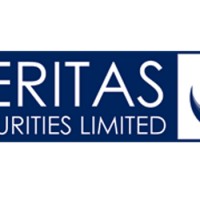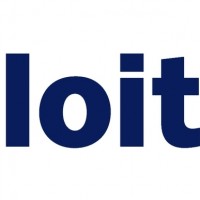2014 has been a remarkable year for ISA Group, punctuated by the opening of Australia’s only state of the art indoor skydive facility, iFLY Downunder.
Read the 2014 Annual report here
News
2014 has been a remarkable year for ISA Group, punctuated by the opening of Australia’s only state of the art indoor skydive facility, iFLY Downunder.
Read the 2014 Annual report here

Veritas Securities report includes the completion and commissioning of the Penrith facility, the appointment of David Murray to the board and the announcement of the Gold Coast site.
Read the new report here.

Written by Anthony Klan
FORMER Australian Special Air Services Regiment soldiers Danny Hogan and Wayne Jones came up with the idea to create the nation’s only indoor skydiving facility or wind tunnel about seven years ago, but a US training mission in 2010 got them over the line.
There were about 35 modern indoor skydive facilities globally, that number rapidly increasing in line with the popularity of extreme sports, and Australia had nothing to offer.
“In the US they (wind tunnels) were being used first-hand by the military and our defence forces were using them in different countries as a training tool,” Hogan says.
He discussed it with Jones — the pair had long been friends, both having served in the same squadrons “in every major conflict Australia has been involved in recent years” — and Indoor Skydive Australia was born, floating in January last year, after raising $12 million.
The group, which operates under iFLY branding associated with similar facilities in the US, will open its first centre, iFLY Downunder, in Penrith, western Sydney, next month.
The company plans to “rapidly” expand the model, opening centres on the Gold Coast, Melbourne, Adelaide and Perth.
Hogan says a key component has been engaging Australia’s aviation skydiving industry, which the pair see as working in concert with the indoor centres, providing specialist ground training and opening up the industry to a far wider audience.
“There are some quite significant synergies between the two industries, some people may see them as competitive but they are nothing but complimentary,” Hogan says. “We are holding sessions with some of the largest drop zone operators, which will work with our expansion.”
And so far — from a market perspective — their calls have been spot-on.
The company was the top performing float last year, according to Deloitte, with the 60 million shares it issued at 20c in January rocketing to 55c by December — a 175 per cent increase. (It was followed by Freelancer, up 156 per cent, and Brisbane-based phosphate explorer Fertoz, up 130 per cent).
This week the shares were trading at 80c, up fourfold on the listing price. “Investors, and those who have been with us from the beginning, are starting to see what we are doing and delivering on our original message,” Hogan says.
The “flight chamber” is 13 metres high, five metres in diameter and allows up to eight experienced people to fly at one time.
It is powered by four 450hp fans in the ceiling of the chamber, which draws the air up, creating lift for the user.
Hogan says the air is then recirculated, entering the tunnel again from the bottom — from below a net — having passed through two 600 kilowatt chilling units that control air temperature.
While the facility is open to anyone — beginners to experts aged “three to 103” — it is the most advanced flight chamber available and can meet the demands of the most advanced skydivers.
“The winds can exceed 250km an hour, which is where the skydiving market is going,” Hogan says.
He says the high speed is required to enable VFS, or vertical formation skydiving, which involves the skydiver flying head or feet down and so providing less surface area and overall lift at a given air speed. “Gone are the old belly down skydivers. Vertical formation is what it’s about at the moment,” he says.
But for Aviation — this journalist tested the facility this week — it was all about the belly-down action. (I tell myself it’s retro.) Frazer Smith, an international skydiving champion brought to Australia from Britain especially to train users at the facility, says it’s belly-first only for first-timers. I have precisely no problem with this.
After flailing around for a few minutes like a sea cucumber at the bottom of giant fish tank, I’m taking off and it feels exactly like that recurring dream you have where you can fly.
It feels exactly like floating; which, to be fair, is precisely what it is.
And another bonus is, it’s a great workout.
(I know this because one; Smith tells us before we start, and two, I wake up the next day feeling like I’ve been trying to tow a truck. But unlike any workout I’ve ever experienced I’d spent the entire time grinning like a manic chipmunk in a Nobby’s Nuts factory.)
David O’Hare, a friend I’ve dragged along to check out the facility, on account of his previous experience with skydiving — and because he tells me he’s been checking the progress of the facility online for months — finishes his dive similarly buzzed.
He wraps up the experience perfectly, smiling and shaking his head.
“This is awesome. Damn I’m going to spend a fortune!”
See the video and original article here

Ever wanted to jump out of a plane, but just hate the thought of actually JUMPING OUT OF A PLANE?! Then iFLY Downunder is the answer…and it is addictive!
With the doors opening to the general public on the 26th April, Australia’s first indoor skydiving facility is already proving to be a huge success with over 500 hours of tunnel time sold in the last few months!
“We knew that indoor skydiving would be a popular attraction in Australia’ comments iFLY Downunder Chief Marketing Officer Brett Sheridan ‘but we are still absolutely overwhelmed with the support we are getting from the public.”
The iFLY Downunder indoor skydiving facility is a state of the art centre that delivers an exhilarating, thrilling and high energy experience that the whole family will want to share.
Indoor skydiving is a safe and fun adventure activity which anyone from ages 3 to 103 can enjoy.
“Our facility will allow people to get a real experience of skydiving in a fully-controlled and safe environment”, comments Brett Sheridan.
“This is the biggest and most powerful vertical wind tunnel in the southern hemisphere and we can’t wait to open our doors so everyone who has ever dreamt of flying, can now fly!”
IFLY Downunders’ parent company, Indoor Skydive Australia Group Limited (ASX:IDZ) is headed up by Ex SAS Soldiers Wayne Jones and Danny Hogan. The two hatched the idea to build the facility after experiencing similar facilities around the world.
“While we were serving and training overseas we were exposed to these indoor skydiving facilities as part of our training”, said Wayne Jones.
“The simulation is so close to the real thing that military and skydivers have been training in these facilities around the world for a number of years…and now Australia can experience flight for the first time!”
“It has been a huge journey from those initial discussions to our doors opening in a few weeks time, but the reward will be on the faces of people flying for their first time”, comments Wayne.
The facility, located in the adventure capital of Penrith, has a 5 metre wide glass flight chamber which is one of the largest and most technically advanced in the world.
The facility can comfortably hold up to 8 experienced flyers and is powered by 4 x 450 horse power fans that can achieve speeds of up to 250km per hour which is powerful enough to lift anyone into flight on a cushion of air.
iFLY Downunder is suitable for people of all skill levels, from first timers to advanced flyers.
Bookings are open now for flights available from the 26th April 2014.
View the original article.

Written by Kristine Tarbert
The first indoor skydiving facility of its kind in Australia has switched on it’s wind tunnel for the first time in Penrith.
Excitement is building towards the grand opening of the facility next month with all involved gathered to witness the first human flight.
IFLY Downunders’ parent company, Indoor Skydive Australia Group Limited is headed up by Ex SAS Soldiers Wayne Jones and Daniel Hogan.
Chief operating officer Daniel Hogan said it all started with a one-liner back in 2007.
“It was during the 50th anniversary of the SAS regiment – that’s where we both served, and from about 2009 that’s when we really solidified the idea and came up with the plan,” Mr Hogan said.
Chief executive officer Wayne Jones said they have used similar facilities for military training overseas and they wanted to bring the same opportunity to Australia.
“Penrith is the adventure capital of NSW, of western Sydney, it’s a growing area and there’s huge opportunities here,” Mr Jones said.
“There are so many activities to do between the Blue Mountains, the Regatta Centre, Wet ‘n’ Wild and the Wake Park just behind us.
The experience is already proving to be a huge success with over 500 hours of tunnel time sold in the last few months.
“The response has been overwhelming. We can’t wait to fly the whole of Australia because that’s who can use the facility: anyone from three years old to 103 years old, boys and girls, birthday parties and corporate events,” Mr Hogan said.
“The overall one-hour experience includes training, fit out of equipment, and then you fly twice – each flight is just under a minute which is the equivalent of a flight from 14000ft,” Mr Jones added.
After the first flight both men were clearly relieved and excited for others to experience the feeling of flight.
“It was beyond expectations, that was absolutely fantastic. You hear the statement ‘a dream come true’ and you never really look at it like that, but when you get to feel it, well now I know the comment,” Mr Hogan said.
Watch the video here.

Indoor Skydive Australia Group Limited (ASX:IDZ) says it is on track to deliver Australia’s first indoor skydiving facility at Penrith in New South Wales.
The skydiving and adventure sports-focussed company advises the commissioning process of the vertical wind tunnel has now started.
Following commissioning the company will begin fitting out surrounding areas of the tunnel such as training, spectator and customer service areas.
As Indoor Skydive Australia Group continues to build its training crew the company has flagged for operations start by the end of the month.
The Sydney-based company listed on the ASX in 2011 and has plans to construct similar facilities in Melbourne and Queensland’s Gold Coast.
Indoor Skydive Australia Group reported a net loss of $1.2 million in the first half of its 2014 financial year.
View the original article and video below:

Written by Max Mason
Skydivers can tackle an indoor challenge in Sydney’s west – 400 flight hours were sold in four hours in an early bird sale.
David Murray may be excited about joining the board of little-known Indoor Skydive Australia but there is one challenge already waiting for the former chief executive of the Commonwealth Bank to tackle head on.
Mr Murray, who was inaugural head of the federal government’s Future Fund, has never taken the plunge and gone skydiving.
“I don’t think I’m going to duck it with these blokes, am I?” he joked.
Due for completion in the first quarter of this year, the indoor facility being built in Sydney’s west is attracting huge interest; 400 flight hours were sold in four hours in an early bird sale, and Mr Murray, who joined the board of ISA as a non-executive director last Monday, will be joining the line of people looking to fly.
“We’ll certainly get David up in the indoor skydiving centre; I don’t know whether or not we’ll get him out of an aeroplane,” ISA chairman Ken Gillespie said. Indoor skydiving works through a wind tunnel, created by electric turbines with airflow sucked out of a central chamber, which houses the skydiver.
It seems an odd marriage between one of Australia’s best-known businessmen and ISA, which has a market capitalisation of just $53.2 million, but the connection is much closer to home than most board member additions.
Mr Murray and Mr Gillespie, who formerly served as Vice Chief of the Defence Force and Chief of Army, have shared a friendship for several years.
“I know the Murray family particularly well, having served in the military with two of David’s brothers over time,” Mr Gillespie said.
Prior to the company’s listing, ISA had trouble drawing interest from banks to help with the initial public offering.
“We basically did the IPO ourselves; we had difficulty attracting people to come on,” Mr Gillespie said.
“I knew David and his background, I went to him and in the first place to say ‘we wouldn’t mind some advice on how we would shore up some investors and make sure the organisation could get through the IPO and go ahead’.”
Initially going along to help ISA, Mr Murray listened to the company’s presentations which piqued his interest.
“I thought what they were doing was unique and they’re a can-do style of operators, which I like. Supporting a start-up is something I like doing, it’s got all the commercial challenges that I like,” Mr Murray said.
The company listed in January 2013, raising $12 million with its IPO at 20¢ a share.
The stock peaked at more than 75¢ in September, and was up 200 per cent in 2013. Shares are trading at 60¢. In December, Mr Murray made a personal investment in the company, purchasing 2.2 million shares at 45¢ each.
“Around that time as well, we were obviously very keen to try and get David on the board,” ISA chief executive Wayne Jones said. “He was very busy late last year with a whole bunch of other things going on.”
It wasn’t long before Mr Murray, who was appointed to head the federal government inquiry into Australia’s financial system, joined the ISA board.
“We’ve got a growth strategy where we will be building another four facilities, around Australia,” Mr Jones said. “We have just signed a joint-territory development agreement [with] SkyVenture, our supplier, and that guarantees us supply and gives us exclusivity of Australia and New Zealand.”
ISA is yet to generate any trading revenue because it is still in the construction phase of development, but if its global take-up of indoor skydiving is any indication, its growth outlook looks strong, Veritas Securities analyst Brent Mitchell said.
“History has shown that these have been very successful. Two recent installations in Texas, Dallas, and Austin, have had a very high utilisation rate and have demonstrated very high margins in the initial years.”
The company’s strong connection to the armed forces should also give it the opportunity to sign training contracts.
Mr Jones, who spent 21 years in the military and 15 years in the Special Air Services Regiment, training free-fall within the unit, said ISA has been in discussions with the Australian Defence Force to use the company’s facility once completed.

Written by Max Mason
David Murray AO, the former chief executive of the Commonwealth Bank of Australia and inaugural chairman of the Australian government Future Fund, has joined little-known Indoor Skydive Australia as a non-executive director.
Mr Murray, who has a beneficial interest in 2.2 million ISA Group shares, said he is looking forward to working with the company over the next few years.
Last year, Mr Murray was appointed to head the federal government’s inquiry into Australia’s financial system.
‘‘I believe being involved in the development of a copany from its foundation stages is personally rewarding and important for the Australian economy,’’ Mr Murray said.
Indoor Skydive Australia Group raised $12 million in a January 2013 listing at 20¢ a share.
The stock surged peaked at more than 75¢ in September, and was up 200 per cent in 2013.
On Monday shares fell 3.3 per cent to 59¢.
The group’s managing director, Wayne Jones, a former member of the Australian military’s Special Air Services Regiment, has an exclusive licensing agreement with United States company SkyVenture to use their technology to build indoor tunnels for simulated skydiving.
ISA is building an indoor skydiving centre in Sydney’s west which is expected to be completed in the first quarter of 2014.
During the day, the centre is to be used for recreation and corporate outings.
However, it is understood that part of ISA’s strategy involves securing military contracts to train armed services personnel.
“Internationally, once built, these centres generate very positive cash flow,” said Greencape Capital portfolio manager Matthew Ryland, who has invested in Indoor Skydive.
ISA chairman Ken Gillespie said in a statement to the Australian Securities Exchange that the company was delighted to have Mr Murray on board.
‘‘His considerable financial expertise and passion for assisting high growth developing companies will prove invaluable to the company,’’ Mr Gillespie said.
Read the original article.

Thrill seekers with a yearning to fly will soon get the chance at a new vertical wind tunnel in western Sydney.
Publicly listed company Indoor Skydive Australia has already put 157 tonnes of concrete in place as it constructs its first Australian facility at Penrith.
The Sydney-based outfit, which listed on the Australian Securities Exchange in 2011, plans to build similar facilities in Melbourne and Queensland’s Gold Coast over the next three to five years.
Vertical wind tunnels give tourists, skydiving enthusiasts and military personnel the sensation of flight, propelling them within a flight chamber using powerful fans.
They were first built for recreational use in the 1970s.
Indoor Skydive Australia says it has already installed a glass flight chamber five metres in diameter, making it one of the largest in the world.
“This flight chamber provides an uninterrupted view for flyers and spectators,” the company said.
The company says all of the initial infrastructure for the project is now in place.
Chief operating officer Danny Hogan said the breadth and height of the wind tunnel could now be appreciated as the facility takes shape.
“Completing the big lifts was a major construction milestone and, together with the work completed over the new year period, positions us well during this critical construction stage,” Mr Hogan said.
During the next stage, the company will focus on mechanical and electrical infrastructure.
Completion of works at Penrith is expected to occur during the first quarter of 2014.
Indoor Skydive Australia added that it is now searching for a location for a vertical wind tunnel in Melbourne.
Western Sydney and the Gold Coast are already home to large fun parks and leisure attractions.
Over the past 12 months, shares in the company have more than tripled.
At 1230 AEDT Indoor Skydive Australia were flat at 60 cents.
Original article is available here.

Value of funds raised set to jump from $1.3b to $7.8b
19 December 2013: After five years in the doldrums, the initial public offering (IPO) market has bounced back in the second half of 2013, with the value of funds raised in the calendar year to soar from $1.3 billion to $7.8 billion.
The latest Deloitte Corporate Finance IPO review finds that, by the end of calendar year 2013, an expected 61 IPOs will be finalised, up from 48 in 2012.
This will make 2013 the biggest year for float activity since the GFC (2007) in terms of funds raised, when 260 IPOs delivered a combined capital raising of more than $10 billion.
Deloitte Corporate Finance Partner and IPO specialist Ian Turner said: “The year has been one of two halves, with the steady growth in the ASX, growing confidence and strong demand from institutional investors, combined with the success of some of the earlier floats such as Virtus, paving the way for a rush of new listings in the second half.
“Approximately 90 per cent of total funds raised in the year are expected to be raised in the second half of 2013, with December alone expected to produce 23 IPOs with a combined capital raising of $4.6 billion.”
Annual funds raised by IPO 2000-2013

A growing trend in 2013 has been the supply of floats from private equity, with about 25 per cent or $2.1 billion of total funds raised being from private equity exits.
Largest IPOs by private equity funds
Deloitte Corporate Finance Partner Steve Woosnam said: “Contrary to at times negative sentiment around pricing of private equity exits, the year-to-date price performance from private equity-owned companies has shown some very positive returns, most notably, Virtus Health, Veda Group and Ozforex who have all achieved 30-plus per cent price gains.”
“While some recent floats are currently in negative territory, we still expect the IPO window to remain open into the New Year, fuelled by a backlog of companies whose listing options in previous years have been limited and given strong and ongoing institutional and retail investor demand.
“The hot sectors in 2013 were financial services, property and healthcare, and they will continue to provide plenty of floats in 2014. We also expect to see plenty of continued supply from private equity.”
The percentage of IPOs trading at or above their issue price was steady with the previous year at 53 per cent, but much improved from a low of 29 per cent in 2011. In addition, the total weighted average price gain of all floats was an encouraging five per cent.
Summary of IPO share price performances
*53 of expected 61 IPOs listed at preliminary review date of 17 December 2013
Indoor Skydive Australia was the best performing IPO of the year, with the Sydney-based company’s 20 cent shares improving by 175% to 55 cents at the review date of 17 December 2013.
The next-best performers were Freelancer (up 156 per cent), Brisbane-based phosphate explorer Fertoz (up 130%) and legal firm Shine Corporate (up 78 per cent).
Mr Turner said the ten largest and the ten best performing IPOs of the year spanned a wide range of industry sectors, reflecting the broad-based nature of the rebound in the IPO market.
“In particular, significant interest has been generated in real estate, financial sevices and healthcare, however the withdrawel of some potential IPO candidates this year also highlights that there is not universal support across all sectors,” he said.
Top 10 IPOs by share price performance
The largest IPO for the year was New Zealand-based Meridian Energy, which listed on the NZX and the ASX after an initial public offer to investors on both sides of the Tasman totalling A$1,129 million. The total amount raised will increase to A$1,694 million when a second instalment falls due in February 2015.
Four of the five largest IPOs of the year are scheduled to occur in December with Cover-More Group ($521.0 million) expected to list this week, following the recent listing of Pact Group ($648.8 million), GDI Property Group ($567.7 million) and Nine Entertainment Co. ($643.3 million) which listed earlier this month.
Top 10 IPOs by size
Mr Woosnam said the industry profile of IPO activity had changed markedly in 2013.
“Resource IPOs out of Perth have dominated the market in terms of number of floats since the GFC,” he said.
“This trend continued into 2012, when almost 80 per cent of all floats were in the mining or energy sectors.
“In 2013, resource floats dropped to only one-third of all IPO activity, and we have seen the re-emergence of industries such as real estate, financial services, healthcare and consumer services.”
IPOs by industry sector
Analysis of float activity by business type (rather than GICS industry classification) highlights the importance of the financial services, real estate and healthcare sectors in the rebound in the IPO market in 2013.
Financial services IPOs > $10m
Financial services related IPOs accounted for $2 billion, or 25 per cent, of all funds raised. The sector produced a number of strong share price performances, resulting in a weighted average price gain of 27 per cent as of the review date.
Real estate IPOs > $10m
Real estate IPOs were also a large source of float activity, accounting for $1.6 billion or 20 per cent of all funds raised, although average price performance was in negative territory at a weighted average share price loss of seven per cent as of the review date, with one more IPO in the sector to follow in the last week before Christmas.
Healthcare/Pharmaceutical IPOs
Healthcare-related IPOs were also an emerging trend in the 2013 market, with a total of $462 million raised by five floats. The weighted average share price gain was 38 per cent, thanks largely to the 50 per cent gain by Virtus Health, one of the 10 largest IPOs of the year.
IPO activity by state
NSW was the most active state for IPOs in terms of float numbers and value of capital raised. The state produced almost half of all IPOs for the year (29 out of 61), and accounted for more than half of the total amount raised. Significant IPOs that have listed to date from NSW include Nine Entertainment Co. ($643m), GDI Property Group ($568m), Cover-More Group ($521m), Virtus Health ($347m), Veda Group ($341m), Ozforex Group ($439m) and Dick Smith Holdings ($345m).
Victoria ranked second among the states, due to large IPOs such as Pact Group ($648.8 million), Hotel Property Investments ($279 million) and Vocation ($253 million).
Read the original Deloitte media release here